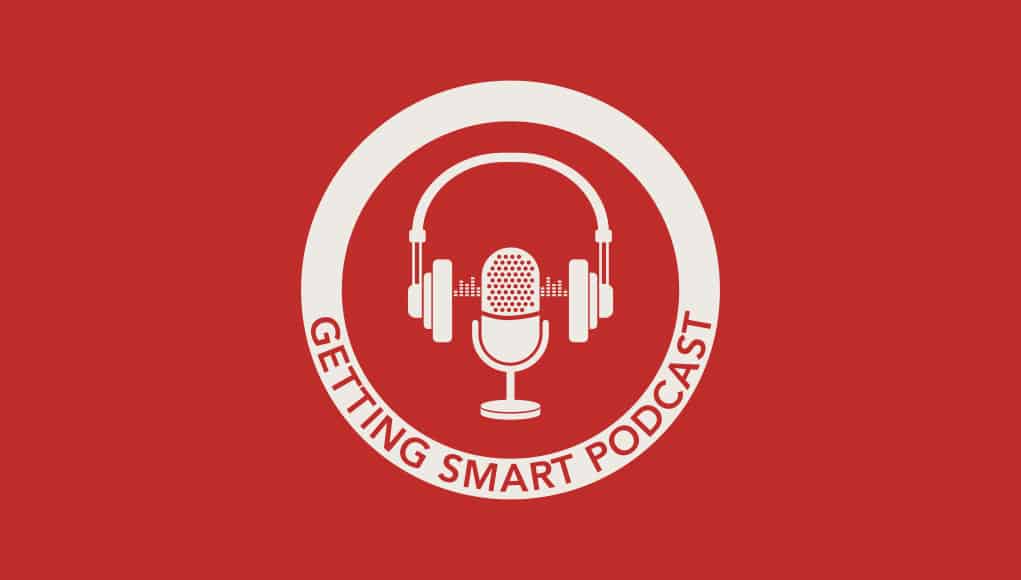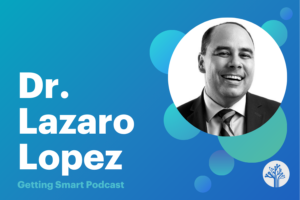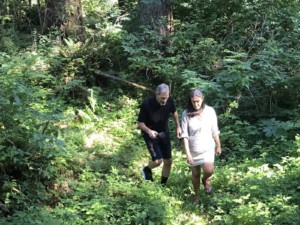Getting Smart Podcast | KnowledgeWorks On Redefining Readiness

Katherine Prince directs the Strategic Foresight team at KnowledgeWorks Foundation in Cincinnati. KnowledgeWorks has a longstanding commitment to peering into the crystal ball and outlining implications in a practical way.
The combination of urbanization, globalization and automation is leading to an increase in unexpected events which makes efforts to understand trends more difficult, but even more important. Katherine sees her work as a way to help people navigate change and make informed decisions.
We spoke with Katherine recently about the new KnowledgeWorks report The Future of Learning: Redefining Readiness from the Inside Out, as well as what it means to redefine readiness with core social-emotional skills.
Podcast Highlights
What’s Happening? The New Landscape
- The rise of smart machines: Powered by artificial intelligence, a range of smart machines perform complex nonroutine cognitive and noncognitive tasks. Smart machines provide deeper ways to navigate our world. Katherine calls them “partners in code.”
- Project-based world: There has been a sharp decline in full-time work (less than three years on average) and an increase in gig and project-based work; Katherine calls it an “extremely ‘taskified’ employment landscape.”
- Platform revolution: We are working, learning and living on platforms. Traditional institutions (e.g., taxi cabs, newspapers) are straining or fully disrupted.
- Cultural shift: The expectation of customization spreads quickly.
- Exponential tech: We’re living on a curve where tech-driven change is happening faster than it used to.
Work Implications
- Market driven and user-centered
- Data and metrics driven
- Grounded in relating
- Modularized and recombined
- Interwoven with learning
Social Implications
- How will society respond to waves of dislocation? Some will coordinate a response (like universal income support) and others will be laissez-faire.
- Inequities could increase including income and access higher education.
- Positive implications may include improved health, transportation and less repetitive work.
 What Should Grads Know and Be Able To Do?
What Should Grads Know and Be Able To Do?
Increasing complexity and uncertainty makes it a good time to redefine readiness. The best way to become ready is to develop uniquely human abilities:
- Self-awareness: Emotional regulation and resilience
- Self-discovery: Learning and communication
- Social awareness: Empathy and perspective
 In addition to social and emotional learning, young people should learn to use data and think creatively. Challenging work helps build resilience.
In addition to social and emotional learning, young people should learn to use data and think creatively. Challenging work helps build resilience.
Katherine also thinks we should help youth become storytellers. Portfolios of quality artifacts and can help students tell their story.
For more, see:
- Staying Ahead of the Robots: What Grads Should Know and Be Able To Do
- PwC Report: AI Boosts Value of Thinking, Creativity and Problem-Solving
- Massive Global Benefit. Waves of Dislocation and Challenge. Time to #AskAboutAI
Stay in-the-know with all things EdTech and innovations in learning by signing up to receive the weekly Smart Update.







0 Comments
Leave a Comment
Your email address will not be published. All fields are required.